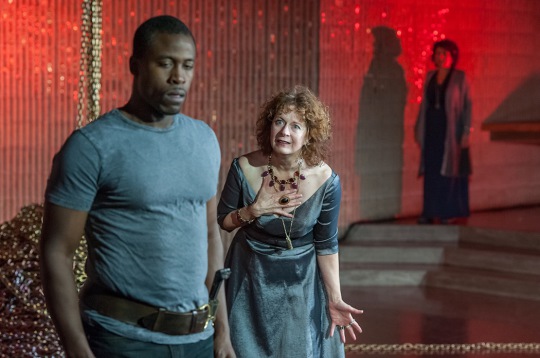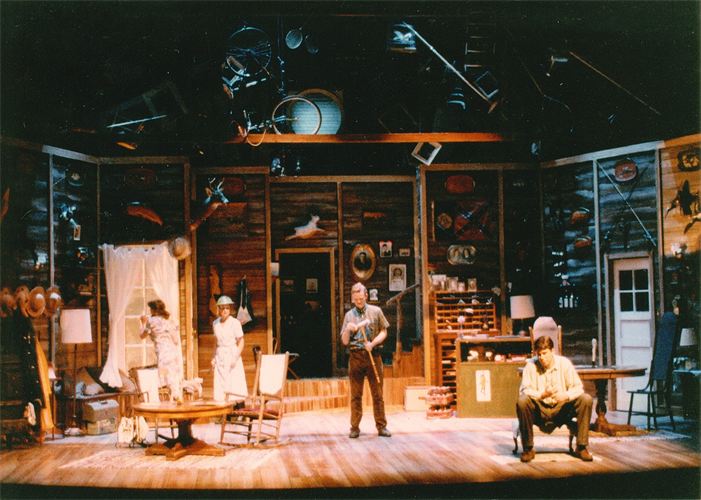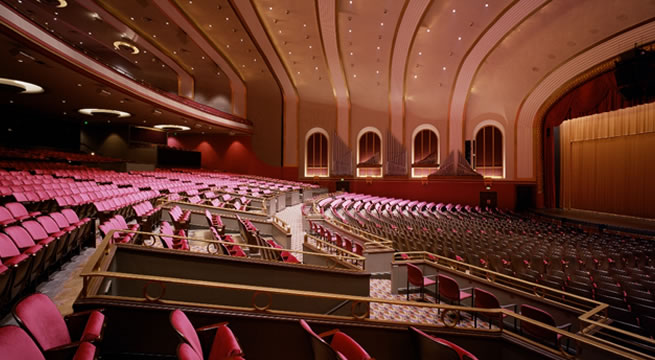
Gallery
Business Details
Our mission is to produce stimulating and intellectually provocative theatrical work at a high level of professional competence; draw from and enrich the Cape May Community
Our mission is to produce stimulating and intellectually provocative theatrical work at a high level of professional competence; draw from and enrich the Cape May Community; facilitate theatrical development and collaborations; and provide an educational theatrical resource for the community.
HISTORY
In January of 1853, the trustees of the Cape Island Presbyterian Church purchased a lot on the north side of Lafayette Street, at the corner of what is now Bank Street. Local builder, Peter Hand, designed and built their church. He designed a Georgian-vernacular style building with an oddly graceful, onion-curved, mosque-like belvedere. For the rest of the summer, Cape Islanders and visitors alike thronged the beautiful new church. In the fall of 1853, the Cold Spring trustees sold it to the Methodists.
The church served the congregation until 1898 when they moved to their new church at Hughes and Decatur Streets. The trustees sold the old church to Annie Knight. She bought it for the local Episcopalians, who had no building.
In the mid 50’s, one of the City’s proposed solutions to the increasing automobile problem was to tear down the church and an old fire station next to it to create a parking lot. The City purchased the Church for $2,000 and began demolition plans. However, an early Cape Island preservationist, Tom Harris, intervened to save the building. He pointed out that Cape May did not have a much-needed Central Community House. The City fathers agreed to support Tom’s effort. Incorporation papers were drawn up for the Historical and Community Center of Cape May (HCC), Inc. The Board declared the building available for art shows, dances, plays, association meetings, banquets, etc.
After running the center for 17 years, Harris grew tired of the job and its responsibilities. In 1973 Mayor Bruce Minnix suggested that the City take over operating the Center. The City converted its primary use into a Visitor Welcome Center, though it still served for meetings, plays and such.
In 1988, Michael Laird descended upon Cape May and incorporated Cape May Stage as an Equity theatre company. Laird, self-described as ‘an Equity actor and a director and producer and a sculptor and a playwright and a poet and a clown’ launched the first Cape May Stage production Sea Marks featuring Tom McCarthy at the Chalfonte Hotel in August, 1989. Ably assisted by Executive Director Angel Conran, during the theatre’s formative years, Laird produced plays at various venues in the Cape May community.
- Type:
- Equity Theater
- Keywords:
Map Location
Equity Theatres - Most Recent Additions
One of the nation's most acclaimed children's theaters, First Stage touches hearts, engages minds, and transforms lives by creating extraordinary theater experiences for young people and…
Actors’ Shakespeare Project believes Shakespeare’s words are urgently relevant to our times. Working as an ensemble of resident company members, we bring these words into the voices,…
Housed in one of the best theater facilities in Vermont, the Playhouse attracts approximately 16,000 theatergoers each season to see live professional theater, produced, rehearsed, and…
Quality Hill Playhouse is dedicated to excellence in the live performance of works from music theatre and the evolving American Songbook, employing the finest local talent, and contributing to Kansas City’s cultural fabric and economic landscape
In 1978, in the damp basement of a downtown brewery, Stages Repertory Theatre burst onto the Houston theatre scene, giving voice to new ideas that demanded to be heard and daring audiences…
CLOSED as of JANUARY 2019
Founded by Bain Boehlke in 1991 in a storefront space at the corner of Lake Street and Lyndale Avenue in South Minneapolis, the Jungle Theater quickly established a loyal following and…
To purchase tickets: https://oss.ticketmaster.com/aps/iuartstd/EN/buy/browse
PROMOS AND SIZZLES
MOST POPULAR FEATUTES
- List of Equity Theatres in The United States
- Gentlemans Guide to Love and Murder - Sean Yves Lessard Interview Outtake
- CURTAINS UP AMERICA! Small City, Big Impact: Riverside Theatre Entertains Florida
- St. Louis Rep Announces Its 2022-2023 Season Starting In August
- It's a White Christmas at the John W. Engeman Theater | Backstage Interviews
SEASON LINEUPS
- Y’all Come Back Now! Maples Repertory Theatre announces its 2022 Season
- Writers Theatre Announces its 2024 - 2025 Season!
- Timeline Theatre Company in Chicago Announces 2022-23 Season
- TheatreZone’s Home for the Holidays kicks off Naples’ theatre company’s 19th season
- TheatreZone in Naples, FL Announces its 2021-2022 Shows &Concert Series










Cape May Stage
Our mission is to produce stimulating and intellectually provocative theatrical work at a high level of professional competence; draw from and enrich the Cape May Community